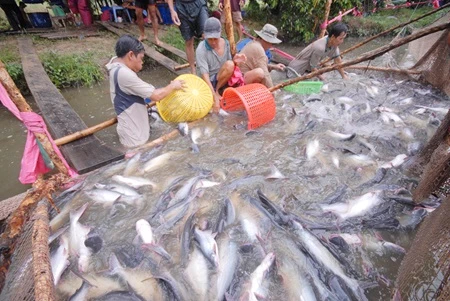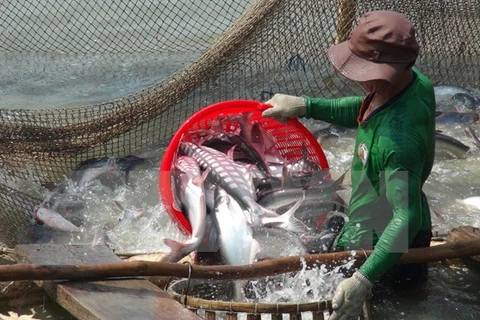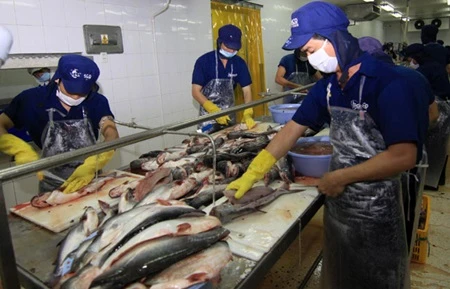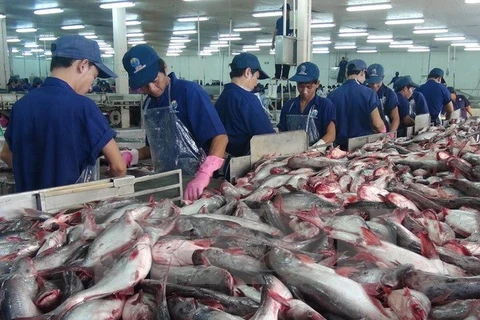Hanoi (VNA) – Tra fish producers in Vietnam’s Mekong Delta region are changing their production models to a more sustainable supply chain, in an effort to improve fish quality and adapt to climate change.
One example of a more sustainable supply chain can be seen at the Phu Thuan fish farm of the Thuan Hung Company at Dai Thanh commune, Phung Hiep district, Hau Giang province.
The farm is divided into pools of 2,400 sq.m with signs indicating the number of fish, weight, size, and origin. Oxygenating devices are installed in the pools with pipes leading water in and out of the pools and all meet European standards.
Chau Thi My Dung, manager of the farm, said the changes helped significantly improve the survival rate of fish to 88-90 percent.
According to Associate Professor Duong Nhut Long from Can Tho University, the higher survival rate of fish from the new farming methods means a reduction of production costs and improved quality of fish.
Meanwhile, a number of fish processing enterprises have switched to energy- and water-saving technology. Huynh Duc Trung, Deputy General Director of the Vinh Hoan Company, said his company now uses smaller pipes and solar energy.
Trung said experts from the Vietnam Cleaner Production Centre (VN CPC) helped train his company’s employees on the energy-saving process and as a result, the company saved 55 KWh on each tonne of fish, equal to 6 billion VND in 2015.
Developing sustainable supply chains in Vietnam is part of the SWITCH-Asia programme initiated by the European Union, which has been implemented in the Mekong Delta since April, 2013 and lasts for 48 months.
Le Xuan Thinh, from the VN CPC who manages the project, said Vietnam supplies 90 percent of the world’s tra fish market, with an annual export volume of 700-800,000 tonnes and a value of 1.7-2 billion USD.
Hoang Thanh, from the European Union delegation in Hanoi, said the EU approved the project because it is a major market of Vietnam’s tra fish, accounting for 40 percent of the country’s tra fish exports. The EU is also promoting sustainable production and consumption in Asia.
The EU provided the project with nearly 1.9 million USD, or 80 percent of its costs. The project is being implemented by the VN CPC, WWF Austria, WWF Vietnam and the Vietnam Association of Seafood Exporters and Producers ( VASEP).
The supply chain development programme will cover all stages of pre-production, processing, trading, marketing and retail stores, to turn Vietnam into a sustainable and environmentally-friendly tra fish producer, processor and exporter by 2020.
The goal of the programme is to have at least 70 percent of tra fish production and processing enterprises on medium-to-large scales and at least 50 percent of all enterprises providing products which meet international standards, such as the Aquaculture Stewardship Council (ASC) and Global GAP.-VNA

Mekong Delta to boost tra fish production, consumption
Government agencies have been asked to help farmers identify the most desirable tra fish products in local and overseas markets, in an aim to increase production and consumption.























